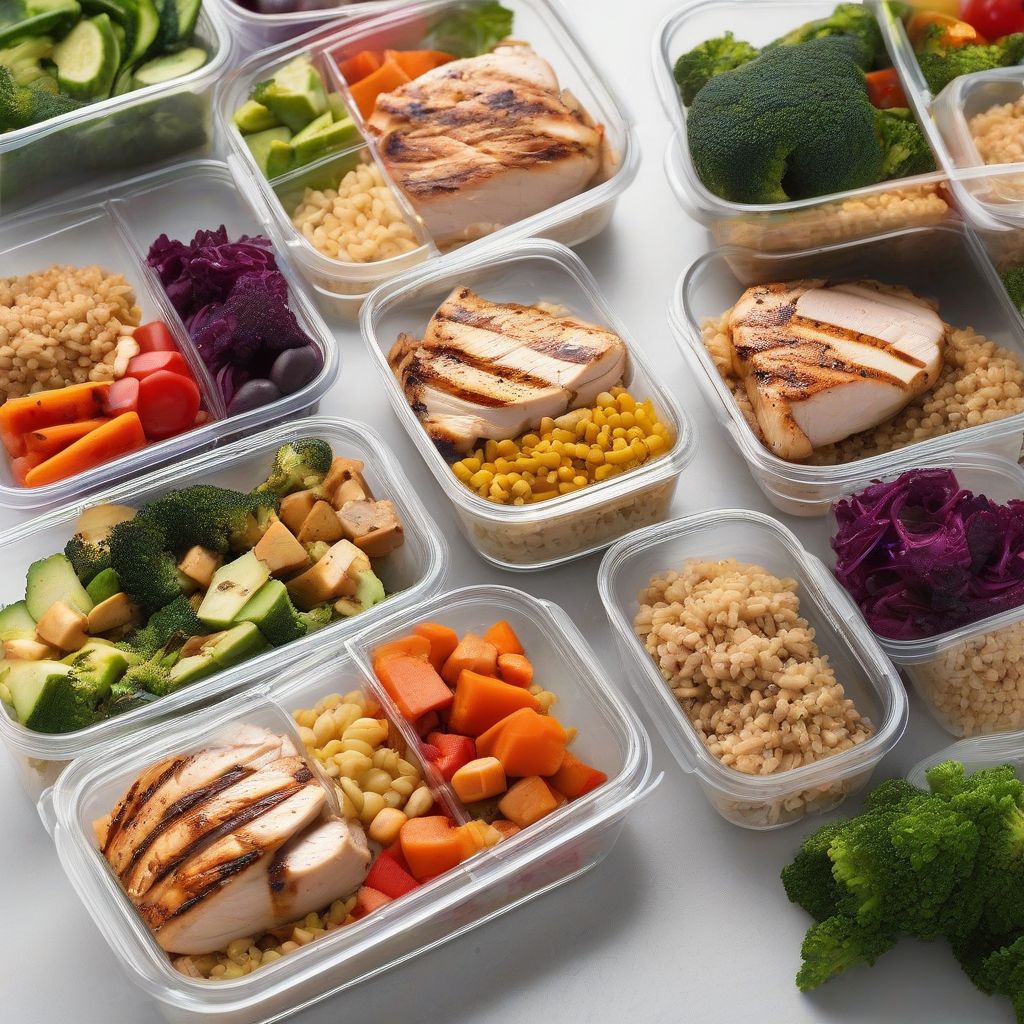Have you ever dreamt of waking up feeling energized, maintaining a healthy weight without constant struggle, and enjoying glowing skin? It’s not a fantasy! A balanced diet is the cornerstone of a healthier, more vibrant you. It’s not about deprivation, but about nourishing your body with the right foods to help it thrive.
Whether you’re starting your health journey or simply seeking tips to fine-tune your eating habits, this comprehensive guide offers practical, actionable advice to make balanced eating a delicious part of your lifestyle.
Understanding the Power of a Balanced Diet
Before diving into specifics, let’s clarify what constitutes a balanced diet. It’s not just about counting calories or obsessing over every gram of fat. Instead, it’s about providing your body with a diverse array of nutrients it needs to function optimally. Think of it as a personalized recipe for your well-being, one that incorporates:
- Macronutrients: These provide your body with energy and are needed in larger quantities. They include:
- Carbohydrates: Found in fruits, vegetables, grains, and legumes, carbohydrates are your body’s primary energy source. Choose complex carbohydrates (like whole grains) over simple carbohydrates (like sugary drinks) for sustained energy levels.
- Proteins: Essential for building and repairing tissues, proteins are found in lean meats, poultry, fish, beans, lentils, tofu, and nuts. They also help you feel fuller for longer, which can aid in weight management.
- Fats: Don’t fear healthy fats! Unsaturated fats found in avocados, nuts, seeds, and olive oil are crucial for hormone production, cell function, and nutrient absorption.
- Micronutrients: These are needed in smaller amounts but play vital roles in various bodily functions. Vitamins and minerals found in fruits, vegetables, and fortified foods are essential for boosting immunity, maintaining bone health, and much more.
Actionable Balanced Diet Tips: Building a Sustainable Plate
Here’s the good news: transitioning to a balanced diet doesn’t have to be overwhelming. Here are practical tips to seamlessly incorporate into your daily routine:
1. Embrace the Rainbow on Your Plate
Remember the joy of coloring inside the lines as a child? Eating a rainbow of colorful fruits and vegetables is like that, but for adults! Each color group offers a unique set of vitamins, minerals, and antioxidants. Aim for at least five servings of fruits and vegetables daily.
- Pro Tip: Keep pre-cut fruits and veggies readily available for easy snacks or to toss into salads and smoothies.
2. Make Whole Grains Your Go-To
Swap refined grains (like white bread and white rice) for their whole-grain counterparts (like brown rice, quinoa, and whole-wheat bread). Whole grains are packed with fiber, which aids digestion, helps regulate blood sugar levels, and keeps you feeling full and satisfied.
3. Prioritize Lean Protein Sources
Protein is your body’s building block, so ensure you’re getting enough from lean sources like fish, poultry (remove the skin), beans, lentils, tofu, and low-fat dairy.
- Expert Insight: According to the Dietary Guidelines for Americans, adults should aim for 0.8 grams of protein per kilogram of body weight.
4. Hydrate Smartly Throughout the Day
Water is essential for countless bodily functions, from flushing out toxins to regulating body temperature. Aim for eight glasses of water per day.
- Tip: Carry a reusable water bottle with you as a visual reminder to stay hydrated.
5. Cook More Meals at Home
Restaurant meals often contain hidden sugars, unhealthy fats, and excessive sodium. Cooking at home allows you to control the ingredients and tailor meals to your dietary needs.
6. Practice Mindful Eating
Slow down and savor each bite. This practice helps you become more aware of your hunger and fullness cues, preventing overeating and promoting a healthier relationship with food.
7. Plan and Prepare Your Meals in Advance
Meal prepping is your secret weapon for staying on track with your balanced diet goals. Dedicate a few hours each week to prepare meals or healthy snack options in advance.
- Resource: Looking for time-saving meal prep strategies? Check out our article on “The Benefits of Whole Foods vs. Processed Foods” for practical tips.
 Colorful and Healthy Meal Prep Containers
Colorful and Healthy Meal Prep Containers
8. Don’t Deprive Yourself – Allow for Occasional Treats
A balanced diet shouldn’t feel restrictive. Allow yourself occasional treats in moderation. This approach can help prevent feelings of deprivation and make healthy eating more sustainable in the long run.
Your Journey to a Healthier Lifestyle Starts Now
Remember, embracing a balanced diet is about making sustainable, long-term changes that nourish your body and mind. Be kind to yourself, celebrate small victories, and don’t be afraid to seek support from a registered dietitian or nutritionist for personalized guidance.
What small step can you take today to make your diet more balanced? Share your thoughts in the comments below!
[amazon bestseller=”balanced diet”]
